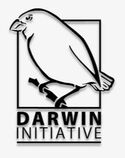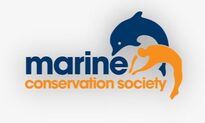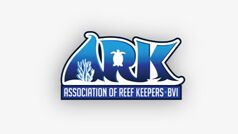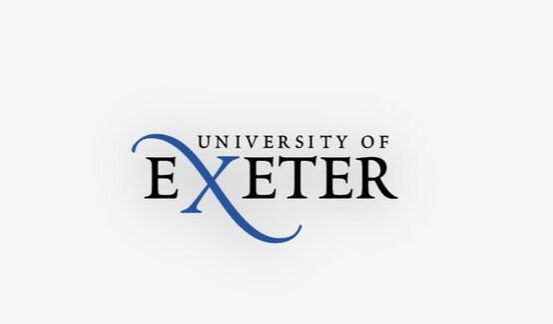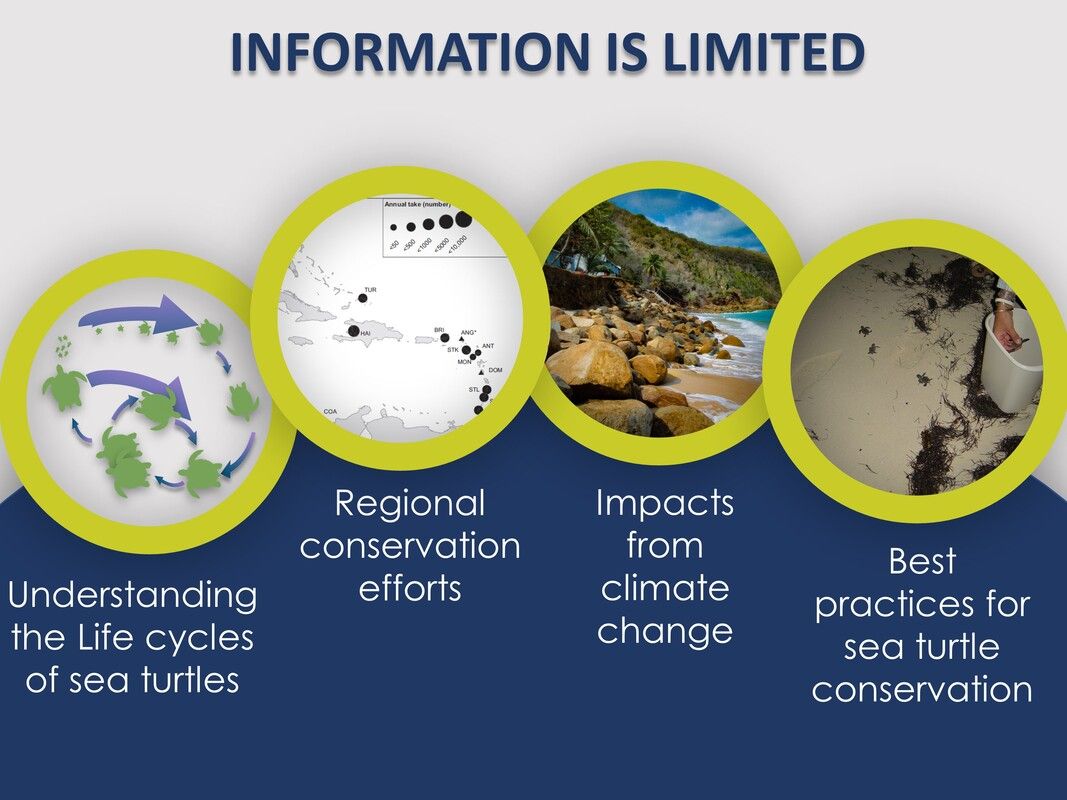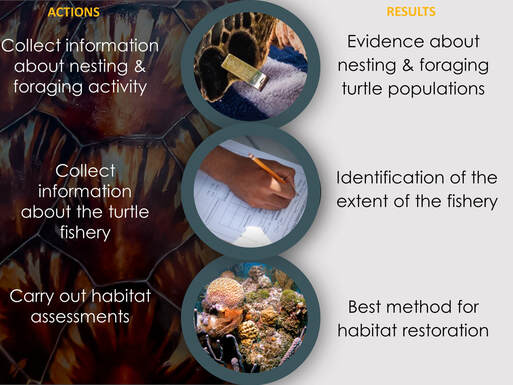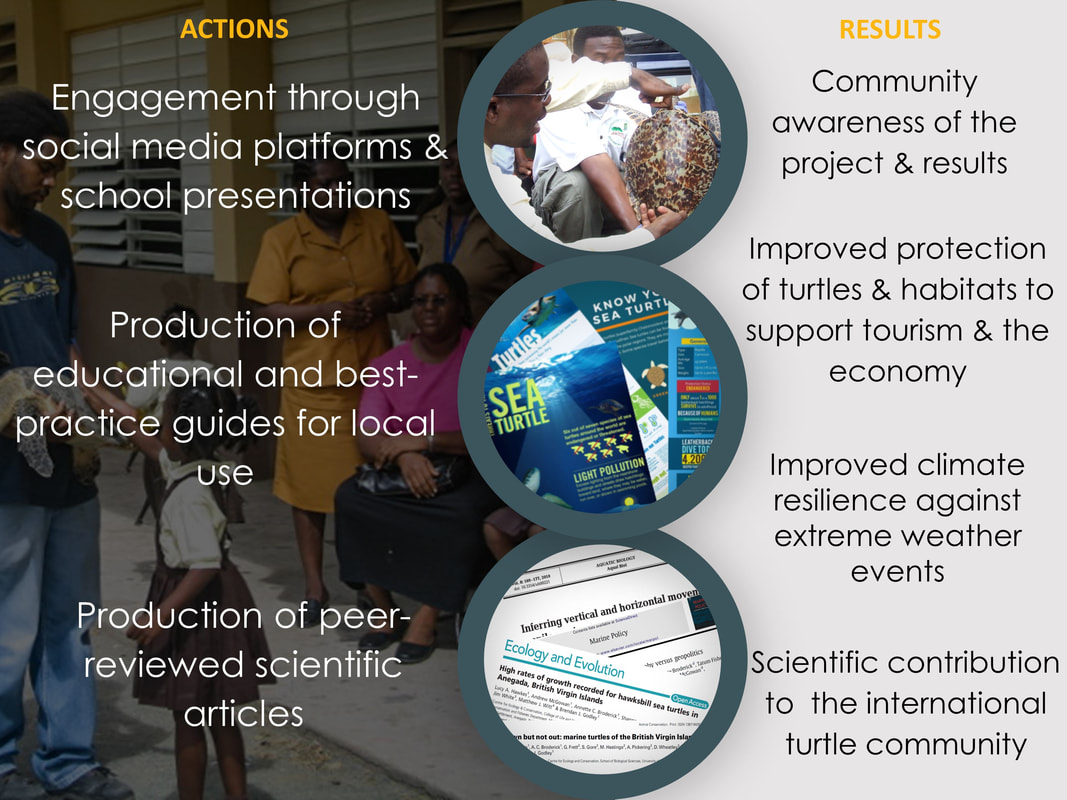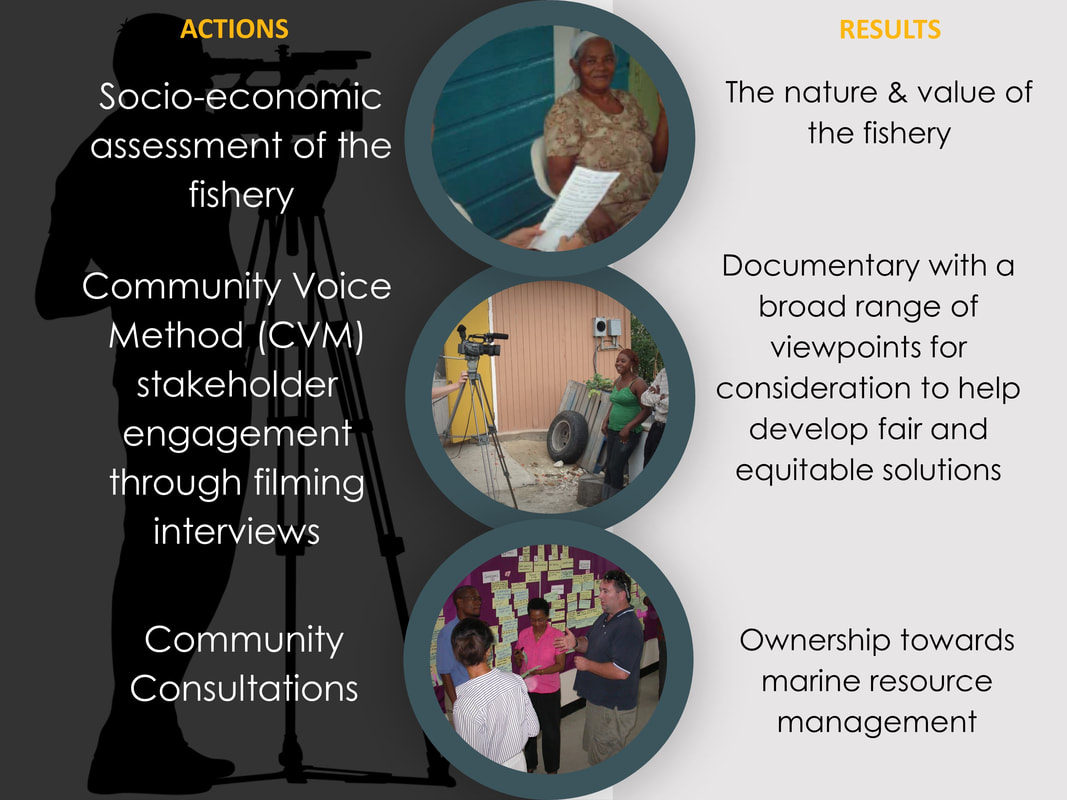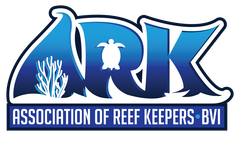COME BACK SOON FOR ALL THE UPDATES!
The STEEL Project is a 3-year UK-funded project under Darwin Plus in partnership with the the Marine Conservation Society UK, ARK, Government of the Virgin Islands and the University of Exeter.
If we used an evidence-based approach to engage all marine resource users and agree on regulations to safeguard the future sustainability of marine biodiversity, could our turtle populations and their habitats recover?
THE PROBLEM
|
Two important sectors of the BVI economy are fisheries and tourism. They both depend heavily on healthy marine environments. The problem is, there is a local perception that our turtle populations are declining and will go extinct simply from overfishing turtles in the BVI. This perception alone has resulted in a growing tension amongst the community with public campaigns to force the turtle fishery to close.
|
|
THIS CONFLICT DOES NOT ENSURE SUSTAINABILTY.
|
OUR APPROACH
|
COLLECTION OF SOCIO-ECONOMIC INFORMATION ABOUT THE VALUE OF TURTLES
The heart of the project comes from engaging the community to help guide the management of sea turtles and recommendations towards legislative reform.
An initial in a gender-balanced and structured questionnaire for current turtle fishers and consumers will explore the fishery’s extent, nature and holistic value. Information collected from the initial survey will help inform Community Voice Method engagement with all stakeholders including turtle fishery opponents. Interviews will be filmed on camera with footage transcribed, coded and analysed, with results (i.e. most expressed opinions) edited into an engaging 30-minute documentary. (Click here for more info about CVM). The documentary will be screened around the islands, with some screenings followed by structured workshops involving stakeholder participants, to discuss and agree potential fishery management measures and Sea Turtle Recovery Action Plan amendments. |
COLLECTION OF BIOLOGICAL INFORMATION ABOUT TURTLES & THEIR HABITATS
Building upon information collected in the past, we will use this baseline and collect similar information for comparison and create a 'National Sea Turtle Database'.
Index sites will be visited at least twice a year to capture, tag & release all the turtles and recapture these turtles over time to identify changes in species and size classes as well as look at growth rates and Fibropapilloma outbreaks. We are also carrying out aerial surveys to look for turtle tracks in the more remote locations to identify BVI nesting numbers. Ground-truthing will identify species and validate any successful nesting activities. Fisheries will be collecting information about landed turtles – similar to what we collect during tagging such as species ID, sizes, total numbers of turtles caught and where they were caught to help us better understand the extent of the turtle fishery. Habitat assessments will also be carried out in key index locations to monitor changes and identify how to restore/recover these areas. COMMUNICATIONS ABOUT THE PROJECT AND INCREASED EDUCATION FOR THE COMMUNITYD
We will also be visiting at least 10 schools a year over the next 3 years to engage kids with the project, teach them about sea turtles and the importance of biodiversity for islands, cultures, and the economy.
We will be working with some of the major resorts, particularly those with fronting nesting beaches to develop educational materials for the resort and their guests as well as various printed materials about best practices for turtle conservation for the wider community. We will have an on-going social media presence to provide up-to-date news about the project and our findings as well as information about sea turtles and best practices for conservation and building island climate resilience. And finally, we will be writing at least one peer reviewed article for publication in a scientific journal as a contribution to the regional and global turtle community. |
Based on analysis of all the biological monitoring, socio-economic data and the CVM process, the team will revise the STRAP and draft recommended amendments to the Virgin Islands Fisheries Regulations and Trade in Endangered Species (CITES) Act. Recommendations will be subject to a further round of fisher consultation before submission to a formal consultative process under the Ministry of Education, Culture, Youth Affairs, Fisheries and Agriculture.
OUR GOALS
|
.Improved public understanding of sea turtles & the turtle fishery.
Increased capacity to use the CVM towards conflict resolution.
Foster a greater sense of ownership & involvement with key stakeholders towards marine resource management
Improved protection of turtles and their habitats which support tourism and the economy
Environmental and economic resilience in the face of more frequent extreme weather events.
Increased BVI nesting & foraging populations
|
